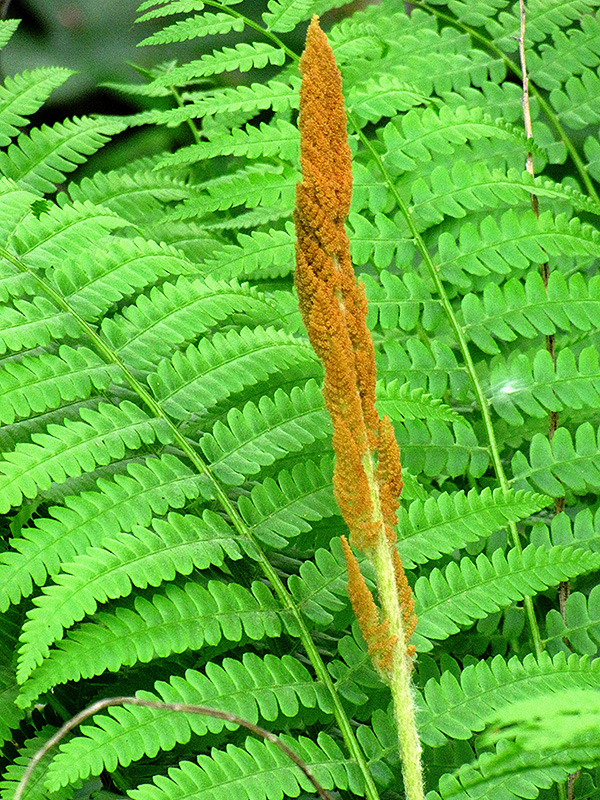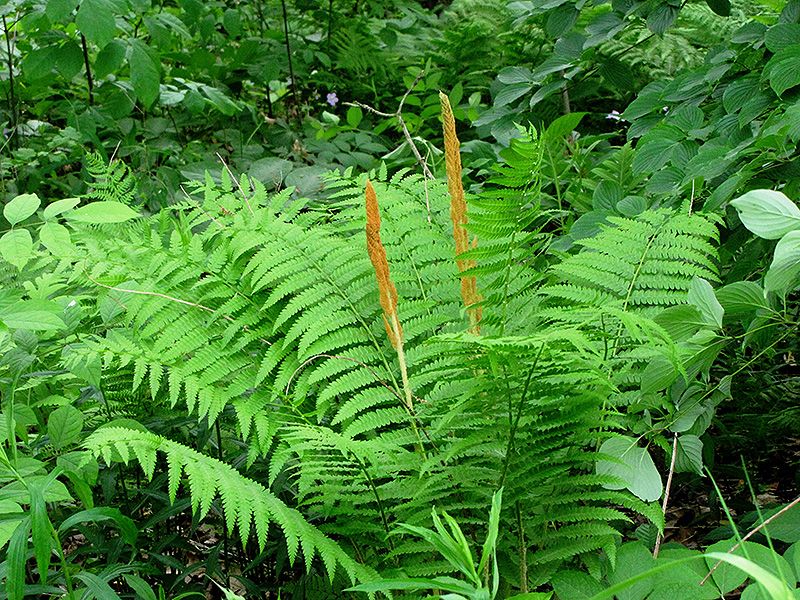Height: 5 feet
Spacing: 3 feet
Sunlight:
![]()
![]()
![]()
Hardiness Zone: 3b
Description:
An elegant fern with giant fronds that maintain a medium green throughout the season turning a beautiful apricot color in the fall; seed stalks are actually shorter than the plant
Ornamental Features
Cinnamon Fern is primarily valued in the landscape or garden for its cascading habit of growth. It features bold spikes of dark brown flowers rising above the foliage in late spring. Its enormous oval bipinnately compound leaves are green in color. The foliage often turns peach in fall.
Landscape Attributes
Cinnamon Fern is an herbaceous fern with a shapely form and gracefully arching fronds. Its relatively fine texture sets it apart from other garden plants with less refined foliage.
This is a high maintenance plant that will require regular care and upkeep, and is best cleaned up in early spring before it resumes active growth for the season. Gardeners should be aware of the following characteristic(s) that may warrant special consideration;
- Suckering
Cinnamon Fern is recommended for the following landscape applications;
- Accent
- Groundcover
- Naturalizing And Woodland Gardens
- Bog Gardens
Planting & Growing
Cinnamon Fern will grow to be about 5 feet tall at maturity, with a spread of 4 feet. When grown in masses or used as a bedding plant, individual plants should be spaced approximately 3 feet apart. It grows at a fast rate, and under ideal conditions can be expected to live for approximately 15 years. As an herbaceous perennial, this plant will usually die back to the crown each winter, and will regrow from the base each spring. Be careful not to disturb the crown in late winter when it may not be readily seen!
This plant performs well in both full sun and full shade. It prefers to grow in moist to wet soil, and will even tolerate some standing water. It is not particular as to soil type or pH. It is somewhat tolerant of urban pollution. Consider applying a thick mulch around the root zone over the growing season to conserve soil moisture. This species is native to parts of North America. It can be propagated by division.








